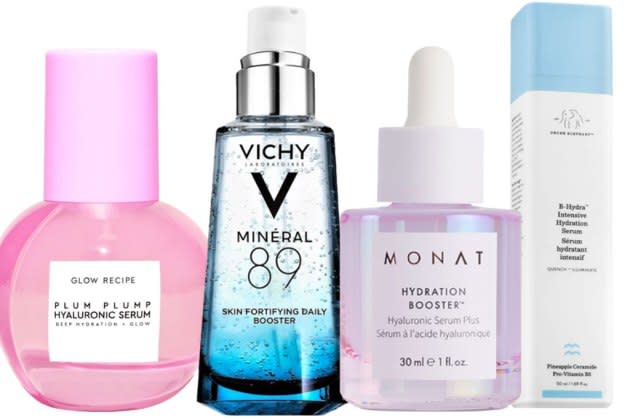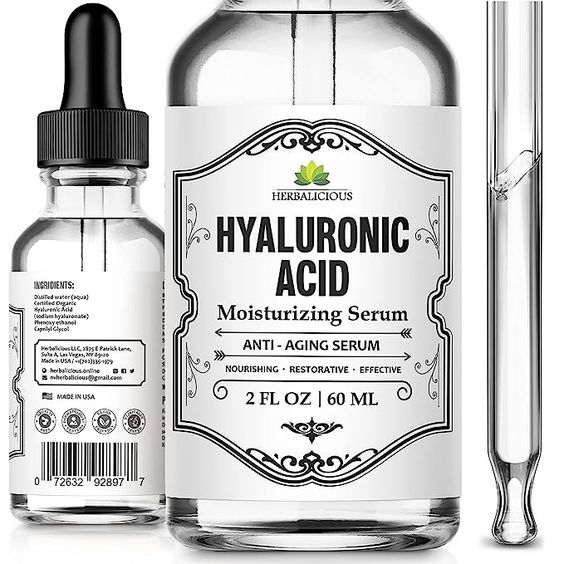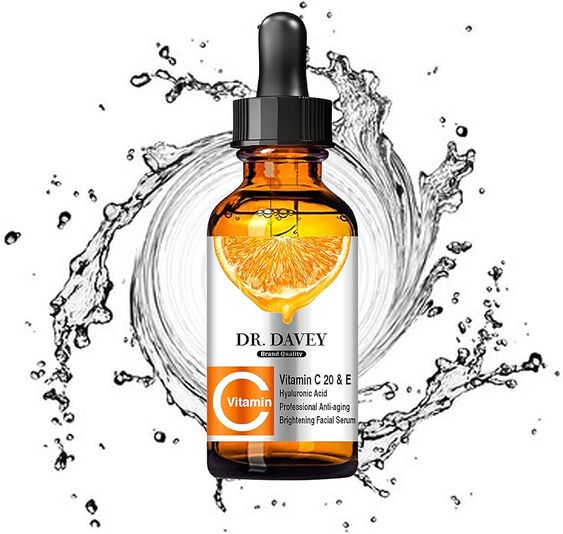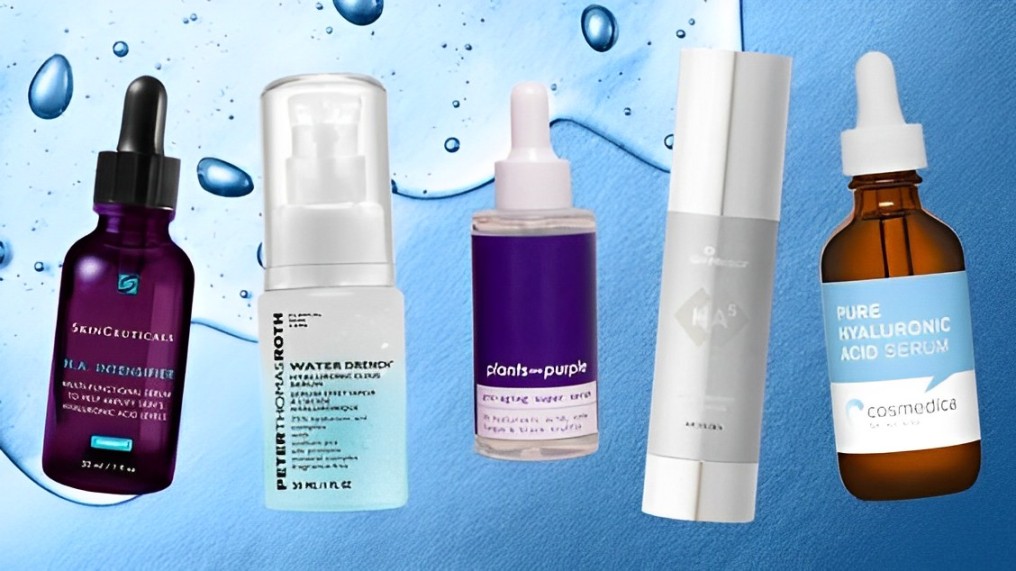Hyaluronic acid, commonly referred to as HA, has become a buzzword in the health and beauty industry, prized for its hydrating properties and its role in maintaining a youthful complexion. As its popularity grows, so do the questions surrounding its effects, particularly whether HA has any impact on weight. Since hyaluronic acid is a naturally occurring substance in the body, known for its capability to retain moisture and support skin elasticity, addressing weight concerns is essential for a comprehensive understanding.
With zero caloric value and its main role being to lubricate joints and give skin its plump, hydrated appearance, there’s little reason to connect HA with weight changes. The confusion might stem from its association with water retention due to its moisture-binding capacity, potentially leading to misconceptions about weight gain. However, the evidence does not support the idea that HA supplements or treatments result in increased body weight. In fact, they are widely used for various medical and cosmetic purposes without such side effects.
Reader's Roadmap
Key Takeaways
- Hyaluronic acid is a moisturizing agent used in skin care without caloric content.
- There is no direct link between hyaluronic acid and weight gain.
- HA is used in medical treatments to lubricate joints and improve skin hydration.
Understanding Hyaluronic Acid

Before diving into the common questions about hyaluronic acid (HA) and weight, it’s important to grasp what HA is, its roles in the body, and where we can find it. It’s a substance that’s closely tied to the moisture in our skin and the comfort of our joints.
What Is Hyaluronic Acid?
Hyaluronic acid, also known as hyaluronan or hyaluronate, is a clear, gooey substance that is naturally produced by the body. Its main job? Keeping things moist. It works wonders for hydration, holding up to 1,000 times its weight in water. This makes it a hydration superhero for your skin and other tissues.
Roles in the Body
HA plays several key roles:
- Skin Health: It helps keep the skin hydrated and plump. The more hydrated the skin, the less prone it is to wrinkles and dryness.
- Joints: HA acts as a cushion and lubricant in the joints and other tissues. If your knees are feeling smooth during a jog, thank HA for that comfort.
- Eye Health: It’s also found in the eyes, where it keeps things nicely lubricated.
Sources of Hyaluronic Acid
The body makes HA, but you can also find it in:
- Supplements: You can take HA in pill form or as a liquid.
- Diet: Foods rich in HA include bone broth and soy-based foods.
- Topical Products: Many skin care products contain HA to help keep skin hydrated and youthful.
Each source can contribute to the HA levels in the body, supporting hydration and overall health.
Hyaluronic Acid and Skin Care
Hyaluronic Acid is a superstar in the world of skin care, renowned for its hydrating properties. This section dives into how it benefits the skin, the types of skin care products it’s found in, and the best ways to apply it for maximum impact.
Benefits for Skin
Hyaluronic acid, a naturally occurring substance in the human body, is pivotal for maintaining skin hydration and elasticity. It has the unique ability to retain moisture—a single gram can hold up to six liters of water. It readily bonds with water molecules, helping to keep the skin plump, hydrated, and youthful in appearance. Regular use can visibly reduce the appearance of wrinkles and fine lines, making it a popular ingredient in anti-aging skin care. It also assists in repairing the skin barrier, reducing dryness and irritation.
Common Skin Care Products
One will often find hyaluronic acid in an array of skin care products including:
- Creams: Thicker emollients perfect for dry skin types.
- Serums: Concentrated formulas that penetrate deeply into the skin’s layers.
- Gels: Lightweight options suited for oily or combination skin.
- Moisturizers: Day or night creams that provide overall hydration.
These cosmetic formulations range from over-the-counter to prescription-strength, each tailored for different skin types and concerns.
Application and Usage
The magic of hyaluronic acid is best harnessed with consistent application. Apply serums directly after cleansing to make use of its water-binding properties on damp skin. Gels and creams can follow to lock in moisture. For those prone to dryness or showing signs of aging, incorporating this mighty ingredient into both morning and nighttime routines amplifies its efficacy. It’s key to note that less is more—one or two drops of serum or a pea-sized amount of cream is usually ample.
Potential Side Effects

While hyaluronic acid is widely used for its benefits, it’s important to be mindful of potential side effects. They are keen to explore any issues that might arise during the use of this substance, especially in the realms of weight management and allergic responses.
Weight Gain and Water Retention
Water Retention: Hyaluronic acid is known for its ability to hold water, and while this is beneficial for hydration, it may lead to water retention in some individuals. Edema, or the clinical term for swelling caused by excess fluid trapped in the body’s tissues, is a noted side effect. However, linkage to significant weight gain is not commonly supported by evidence.
Consultation: If they notice signs of water retention or unexpected changes in weight, it is crucial for individuals to seek guidance from their healthcare provider.
Allergic Reactions
Allergic Reactions: Although rare, allergic reactions to hyaluronic acid can occur. Reactions might manifest as swelling, redness, pain at the injection site, or more severe systemic symptoms.
Healthcare Provider: Any signs of allergic reactions warrant immediate attention. One should reach out to their healthcare provider for a proper consultation and discuss their symptoms for appropriate management.
Dietary and Supplementation Considerations
When exploring the relationship between hyaluronic acid (HA) and weight, it’s essential to know how to properly incorporate it into one’s diet or through supplementation without concern for weight gain. HA is naturally present in many foods, and supplements are also widely accessible, providing multiple ways to achieve adequate HA levels for health benefits.
Incorporating HA into Your Diet
To maintain optimum levels of HA, individuals may look towards natural food sources rich in this nutrient. Hyaluronic acid is found in bone broth and organ meats, reflecting its presence in connective tissues. Including these foods can assist in supporting the body’s own HA production. Additionally, fruits like citrus and vegetables such as leafy greens and root vegetables can complement HA levels, as these foods support collagen and, by extension, HA synthesis. Considering hydration is crucial as well, as HA can retain water in the body, contributing to its function efficiently.
Choosing the Right Supplement
For those considering oral supplements to boost HA levels, selecting the right one is paramount. Oral supplements of hyaluronic acid are available in various forms such as capsules, tablets, and liquids. When choosing a supplement, they should ensure it’s from a reputable source with transparent ingredient listings. The appropriate supplementation can provide benefits such as supporting skin hydration and joint health. It’s recommended to discuss with a healthcare professional to determine the need for HA supplementation in their diet, especially since hyaluronic acid, as stated, does not have a caloric value nor does it contribute to weight gain directly.
Medical and Cosmetic Procedures

When it comes to hyaluronic acid, one can’t help but marvel at its versatility, particularly in medical and cosmetic procedures. This substance isn’t just something doctors talk about in hushed tones; it’s a game-changer for anyone looking to alleviate joint discomfort or enhance their natural glow.
Hyaluronic Acid Injections
Hyaluronic acid injections are commonly administered by dermatologists and other medical professionals as a treatment for various conditions. Specifically, these injections are pivotal for:
- Joint Pain: Often prescribed by doctors for patients with arthritis, injecting hyaluronic acid directly into a joint can vastly improve mobility and reduce pain.
- Cosmetic Fillers: The cosmetic use of this polysaccharide is widely known for its ability to plump and revitalize skin, reducing wrinkles and giving a youthful appearance.
It’s worth noting that these injections should only be conducted by certified professionals, as they require precision and an understanding of human anatomy.
Role in Healing and Aesthetics
In the realm of healing and aesthetics, hyaluronic acid is nothing short of a miracle worker. Let’s delve into its main functions:
- Wound Healing: This wonder compound supports the body’s healing process by regulating inflammation and signaling the body to build more blood vessels in the damaged area. Faster healing and reduced scarring? That’s hyaluronic acid at work.
- Aesthetic Serum: Beyond injections, hyaluronic acid is also a star ingredient in serums and moisturizers, which, when applied topically, assist in hydrating the skin and maintaining that irresistible dewy look.
Some serums may be available over-the-counter, while others could require a prescription. If someone feels their skin losing its luster, a dermatologist might suggest incorporating a hyaluronic acid serum into their skincare routine.
In conclusion, whether it’s through filler injections to smooth out fine lines or the application of a serum to quench thirsty skin, hyaluronic acid holds a firm place in the pantheon of skin and joint care. And, for those few unwelcome times when a cosmetic procedure might require reversal, the enzyme hyaluronidase can be used to dissolve hyaluronic acid fillers, reassuring the user of the control they have over their treatments.





